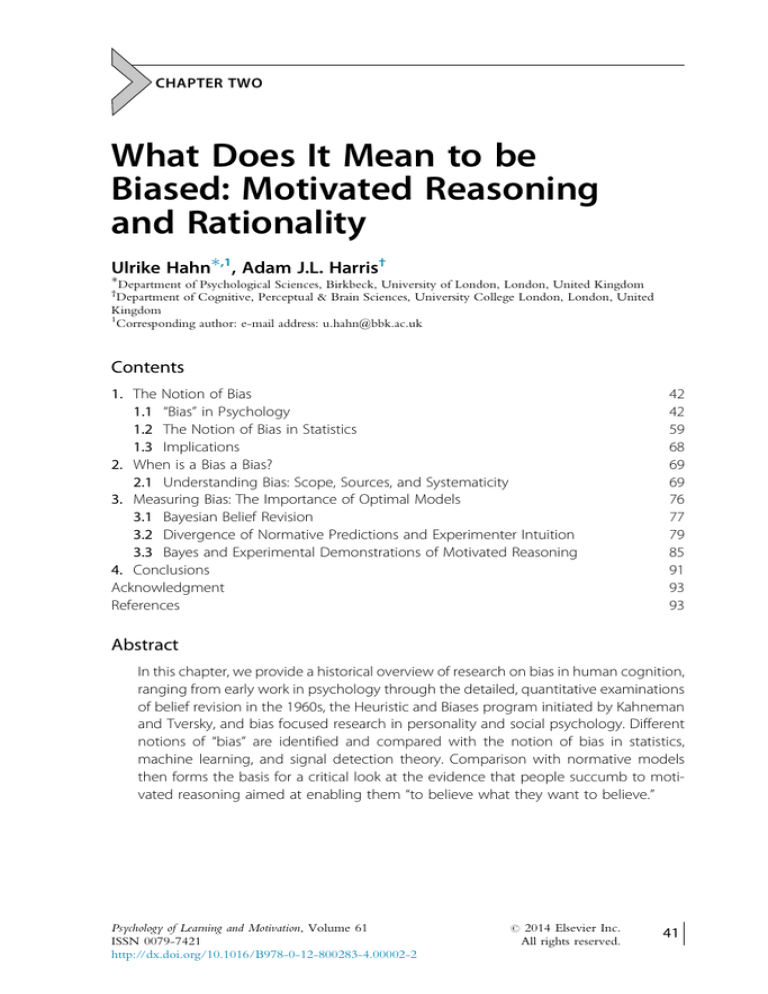

In actual fact, robust evidence for such a biasing effect of utilities or values on judgments of Measuring Bias: The Importance of Optimal Models We begin our example-based discussion with a very general bias which, if robust, would provide direct evidence of motivated reasoning, namely “wishful thinking.” Under this header, researchers (mostly in the field of judgment and decision-making) group evidence for systematic overestimation in the perceived probability of outcomes that are somehow viewed as desirable, as opposed to undesirable. In everyday use, the term “bias” refers to a lack of impartiality or an undue preference: bias is “an inclination or prejudice for or against one person or group, especially in a way considered to be Understanding Bias: Scope, Sources, and Systematicity Consequently, it seems necessary to start with a survey of the term's usage.

This holds not just for its wider connotations, but even its immediate meaning. A reader venturing into the psychological literature about human biases soon realizes that the word “bias” means many things to many people.


 0 kommentar(er)
0 kommentar(er)
